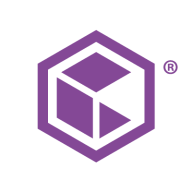

Commvault Cloud and Cohesity Data Cloud are two leading data management solutions. User reviews suggest that Commvault Cloud has an edge in customer support and pricing, but Cohesity Data Cloud stands out with its robust feature set.
Features: Commvault Cloud users value its comprehensive backup and recovery options, the platform's flexibility, and integration capabilities. Cohesity Data Cloud users praise its ease of use, impressive scalability, particularly for large-scale data environments, and user-friendly design.
Room for Improvement: Commvault Cloud could benefit from simplifying its configuration, updating its documentation to be more user-friendly, and enhancing its user interface. Cohesity Data Cloud users feel that its reporting tools could be more sophisticated, analytics tools more user-friendly, and its documentation more detailed.
Ease of Deployment and Customer Service: Commvault Cloud's deployment is somewhat complex, but users praise its strong customer service team. Cohesity Data Cloud is reported to be easier to deploy, with users appreciative of the comprehensive support provided.
Pricing and ROI: Commvault Cloud offers competitive pricing with good ROI, though its initial setup costs can be high. Cohesity Data Cloud has significant setup costs, but users feel its ROI justifies the investment due to the enhanced features and ease of use.
If I find myself stuck in a cyber recovery situation, this tool can help me avoid spending my money on ransom payments.
The level of confidence that Cohesity Data Cloud delivers to the clients is worth that cost.
issues with Cohesity Data Cloud have not been encountered, suggesting a robust service.
They need to work faster to meet client requirements, especially when business is affected.
They probably upstaffed and made sure their knowledge was more up-to-date.
The number of people who know Commvault Cloud is lesser compared to Veeam.
At the pre-sale cycle, we have spocks aligned from Commvault with whom we get in touch, and they provide all the required support that we need.
Customer support has very closed departments, requiring us to shuffle between them to get one thing done because representatives have limited accessibility.
Scaling depends on subscription levels - when customers exceed their subscribed storage capacity, they can pay Cohesity to scale the resources.
There are no issues with scalability on the cloud end.
It's easy to add additional nodes to a current existing cluster, making it quite easy to expand.
Compared to other tools, it is very efficient and simple to learn.
I couldn't find anything negative about Cohesity Data Cloud specifically.
Cohesity Data Cloud is quite reliable.
I have not faced any downtimes with Commvault Cloud.
Commvault Cloud is highly stable, and I would rate it a ten out of ten.
Issues such as ransomware protection and fixing vulnerabilities should be prioritized.
Cohesity Data Cloud scans backups by default for ransomware and malware, sending notifications if there are any security concerns or compromised systems.
The primary drawback is the need to transfer large amounts of data to the cloud via an internet connection, requiring significant bandwidth.
I would like to see AI capabilities in Commvault Cloud.
I feel that the support is not yet up to the mark, with not enough professional engineers to provide assistance.
Cohesity Data Cloud is more costly in the long term compared to physical tapes.
Comparatively, compared to IBM and Commvault, Cohesity Data Cloud offers the best deal for my environment.
All organizations are very interested in as-a-service model where they do not pay upfront cost, but they only get the services and pay for what they use as they use it.
Commvault Cloud is expensive, and there is room for the price to be 10-15 percent lower than what they are charging currently.
It replicates data to the cloud in a tamper-proof manner, offering protection against ransomware attacks since it is not under administrative control.
They have a feature called DataSock, which enhances data protection.
The initial deployment of Cohesity Data Cloud, from my experience, is easy.
We can back up unlimited TBs due to our per node license.
Other features include endpoint solutions, integration with Office 365, ransomware protection, archival for long-term retention, and no ingress or egress charges.
The public cloud acts as a bigger solution for the on-premise while the on-premise acts as a DR for the public cloud workloads.
| Product | Market Share (%) |
|---|---|
| Commvault Cloud | 4.0% |
| Cohesity Data Cloud | 0.8% |
| Other | 95.2% |

| Company Size | Count |
|---|---|
| Small Business | 5 |
| Midsize Enterprise | 1 |
| Large Enterprise | 7 |
| Company Size | Count |
|---|---|
| Small Business | 57 |
| Midsize Enterprise | 24 |
| Large Enterprise | 82 |
Consolidate your backups, file shares, object stores and data for dev/test and analytics on a web-scale data management platform.
Commvault Cloud is the ultimate cyber resilience platform built to meet the demands of the hybrid
enterprise. Beyond its core functionality of data backup and recovery across diverse workloads, including applications, databases, virtual machines, and files, Commvault Cloud stands out as a robust defense against ransomware. Going beyond backup, the platform integrates advanced data security features such as encryption, access control, and threat detection, safeguarding against unauthorized access and cyber threats.
With tools for data management, classification, and migration, businesses can optimize storage costs, enhance accessibility, and comply with regulations seamlessly. Boasting cloud integration with major providers like AWS, Azure, and Google Cloud, Commvault Cloud leverages the scalability and flexibility of the cloud for comprehensive data protection and management. The platform's automation capabilities streamline tasks, and its reporting and analytics features provide valuable insights into data usage, potential risks, and optimization strategies. Commvault Cloud is not just a security tool; it is a key component of cyber resilience, enabling organizations to not only protect against cyberattacks but also recover swiftly and minimize the impact of incidents. Elevate your cyber resilience strategy with Commvault Cloud.
We monitor all Backup and Recovery reviews to prevent fraudulent reviews and keep review quality high. We do not post reviews by company employees or direct competitors. We validate each review for authenticity via cross-reference with LinkedIn, and personal follow-up with the reviewer when necessary.